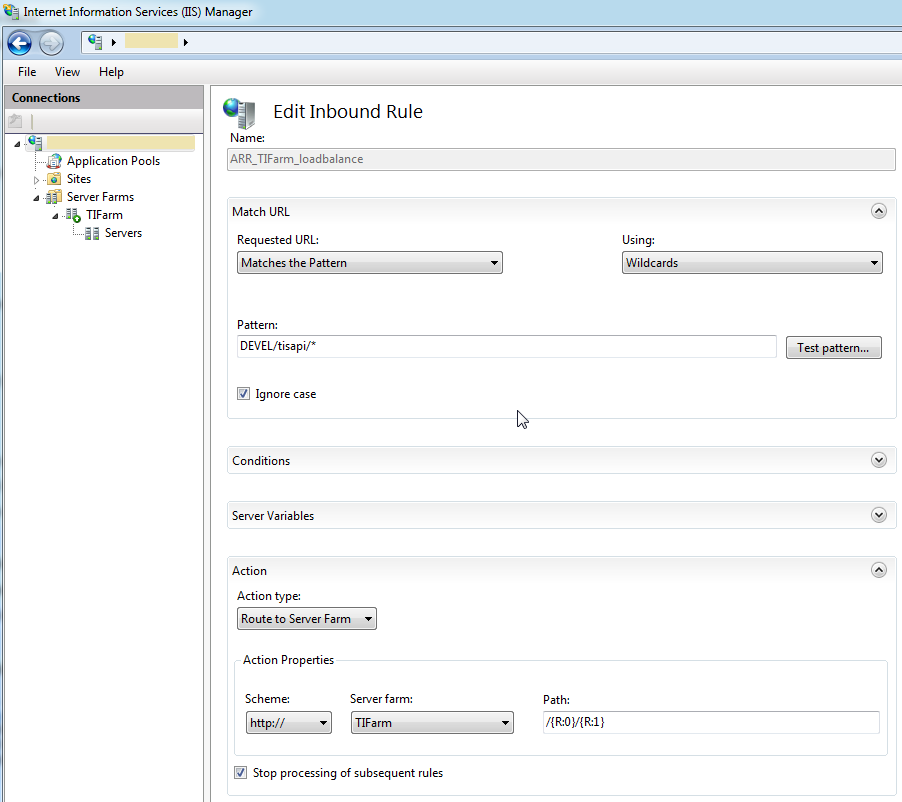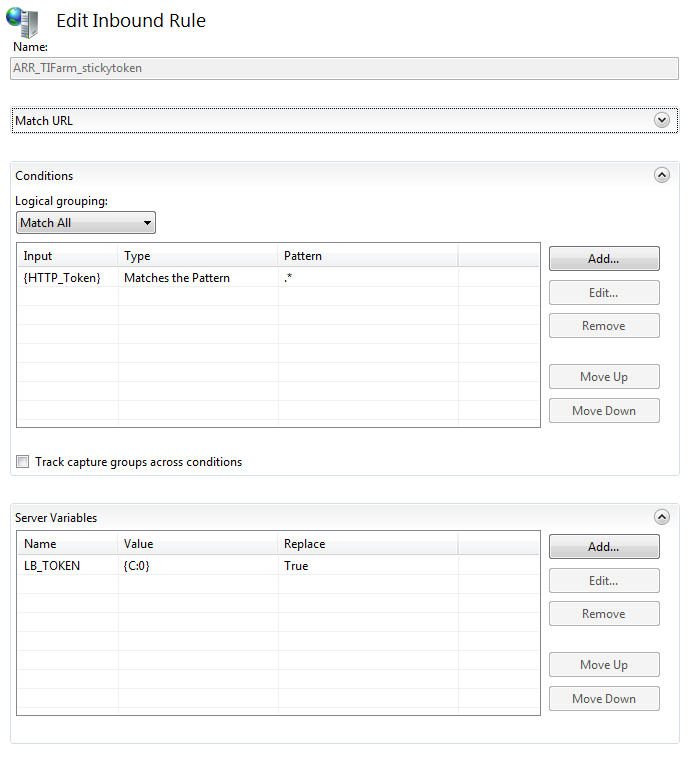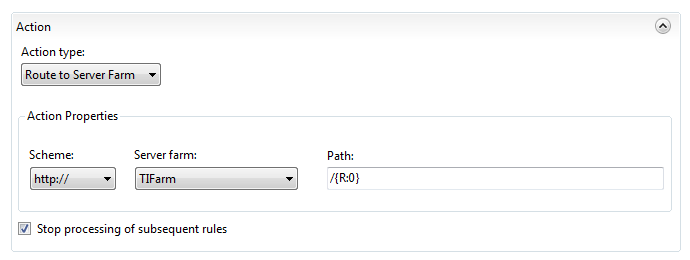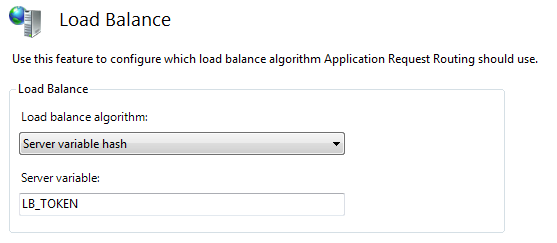Load Balancing
Step | Description | Screenshot |
|---|---|---|
ARR | Install Application Request Routing for IIS. | |
Server Farm | Define a server farm and add your servers to the farm. | |
URL Rule 1 | Edit the Inbound Rule |
|
URL Rule 2 | Edit the Inbound Rule "sticky session"
See also MSDN Documentation |
|
Server Affinity | Disable Server Affinity because, we're using a custom "sticky session" rule (as defined above). | |
Load Balancing | Set the algorithm to "Server variable hash". Use "LB_TOKEN" variable, which contains the sessions token. |
|
Same host aliases | For multiple TI services on the same host, aliases must be defined in the Windows hosts file, so they can be referenced in ARR. Windows hosts file: | # Copyright (c) 1993-2009 Microsoft Corp. # localhost name resolution is handled within DNS itself. |
Redis | Single Redis instance used by all TIService instances | |
Cron jobs | select a list of APPIDs comma-separated, empty means all instances, Synchronization via Redis lock. Parallelism One for only one instance executes the cron job, All for all selected instances executes the cron jobs in parallel. | |
File Guard | Set key in TIService instance which executes the file guard. |
Limitations up-to version 6.3
Topic | Description | |
|---|---|---|
Cron jobs | Instances of TIService execute cron jobs independently. | Here is the procedure we suggest to ensure that the cron job is executed only by one instance.
See also Setting up a cron job (cronjob) |




